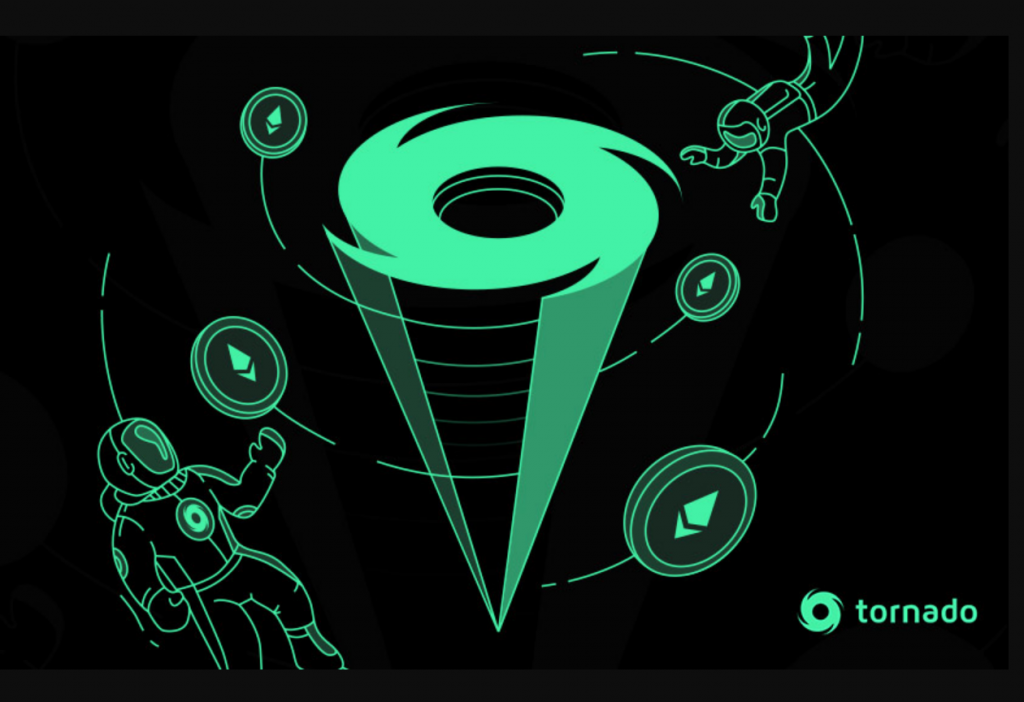The Downside of Sanctioning Tornado Cash

What Is Tornado Cash?
Tornado Cash is an Ethereum-based, completely decentralized non-custodial protocol permitting private transactions in the crypto space. To achieve this privacy, Tornado breaks the on-chain link between the Ethereum address and the sender’s address.
Tornado is powered by fund pools that combine users’ assets together and zero-knowledge ZK-Snark hashing to hide the information of withdrawals and deposits.
Put simply, you can deposit your funds (ETH or other tokens) into a large pool and assign any other address the permission to claim those funds. Users interact with Tornado’s smart contracts via a site hosted by a centralized service, but anyone is free to cooperate directly with the contract, which is hosted on the blockchain.
The Treasury Department Sanctions Tornado Cash
On August 9, 2022, the American Treasury Department sanctioned ETH-based transaction privacy service Tornado Cash and added Tornado URLs and smart contract addresses to its OFAC Specially Designated Nationals (SDN) list, blacklisting the full tool.
Tornado is a smart contract-based currency mixer that allows anyone to deposit ETH and secretly withdraw it from another address, providing full financial privacy. For example, you can deposit ten ETH from address A and withdraw that ETH using address X, Y, or Z, without anyone knowing it came from address A.
The Treasury Department justified its action by stating that Tornado was used for money laundering, citing the recent $625 million March hack of the Axie Infinity Ronin network, which was performed by hackers with known ties to the DPRK. “Since its creation back in 2019, Tornado Cash has reportedly laundered more than seven billion dollars worth of virtual currency,” said a Treasury Representative. Meanwhile, nearly 3.8 million ETH were deposited, and developers from around the globe contributed to improving Tornado’s code.
As a result of the U.S. action against Tornado Cash, approximately $424.28 million in digital assets were blocked, according to data from blockchain analysis provider TRM Labs Inc.
Roman Semenov (Tornado Cash co-founder) did not immediately respond to requests for comment.
Circle Internet Financial Ltd., the crypto-targeted firm that manages USD Coin, the second-largest stablecoin by market capitalization, announced it had blacklisted some Tornado Cash wallet addresses and limited the movement of USDC funds in the blacklisted addresses, in compliance with the sanctions.
Stablecoins like USDC, which peg their value to external benchmarks or assets, underpin the DeFi ecosystem, as most transactions are priced in dollars.
Crypto observers acknowledged that while it was correct for Circle to comply with the sanctions, they expressed concern about the downstream effects of such legal compliance.
How Tornado Cash Caught the Eye of the OFAC
Due to its suspicious nature, Tornado Cash attracted the attention of the OFAC, which deemed it in violation of E.O. 13694 for facilitating the transport of illegally obtained funds that could be used for further criminal activities. The use of such funds could compromise personal information, trade integrity, private financial data, and economic stability.
Criminals have increasingly used currency mixers like Tornado Cash, providing them with added security and shielding them from criminal investigations.
How the Sanctions Have Affected Tornado Cash
All assets and properties under Tornado Cash, owned by organizations or individuals in America, must be reported to the OFAC, who will block them. Any assets that are 50% or more in possession of blocked individuals will also be blocked and investigated for connections to money laundering. Individuals wishing to trade using Tornado Cash must obtain a special license from the OFAC explicitly granting permission.
The OFAC will include such people on the SDN list until it is confident they are no longer involved in such activities. The OFAC has stated that the purpose of these high sanctions is to punish individuals using Tornado Cash for illegal activities and to bring about meaningful changes to reduce such actions.
Tornado Alternatives
Tornado Cash represents a risky investment given the negative news and losses incurred in the recent weeks, making it legally unsuitable as an investment for retail investors.
One potential alternative is to invest early in the best and latest crypto projects while they are still on presale. One such project is TAMA, or Tamadoge, a meme coin with a difference — one that promises value and utility to holders that Shiba Inu, Dogecoin, and others do not.
Tamadoge, which has been confirmed by Coin Sniper and audited by Solid Proof, exceeded its beta presale allocation by raising $2 million in just two weeks. Another round of sales has now started. Two hundred million tokens were sold, and another hundred million have been launched, with prices increasing by 0.025 USDT with each tranche. By the end of the final presale, the TAMA token price will be 0.03 USDT — 3x the original beta sale price.
TAMA holders will be able to mint pets in Q4 2022, raise them, and upgrade them with food and collectibles. Once they have grown powerful, pets can battle other players to earn points and gain a position on the international leaderboard, with the chance to win prizes.
The pets will be 3D by the beginning of 2023, and by Q3 2023, they will be available in augmented reality, allowing players to take their pets into the real world and hunt for TAMA tokens and other prizes.
End Words
The OFAC sanctioned Tornado Cash, a virtual digital currency mixer based on the Ethereum blockchain, for failing to implement sufficient controls to prevent malicious actors from using it for money laundering and other illicit purposes. In its pursuit of enhanced anonymity, it inadvertently aided entities with harmful intentions to society and the nation. People who continue to use this currency in the future may be targeted by the OFAC for suspicious behavior and added to the SDN blocked persons list.

